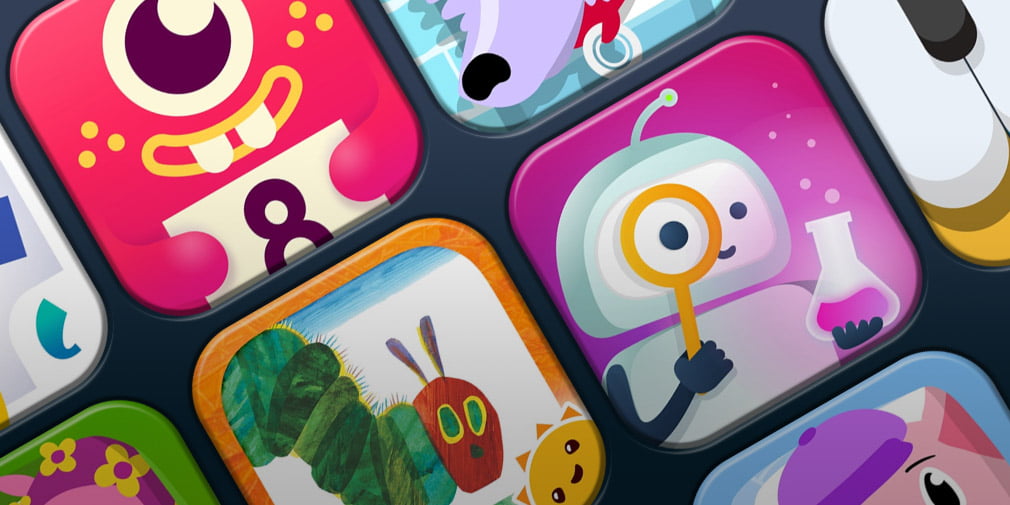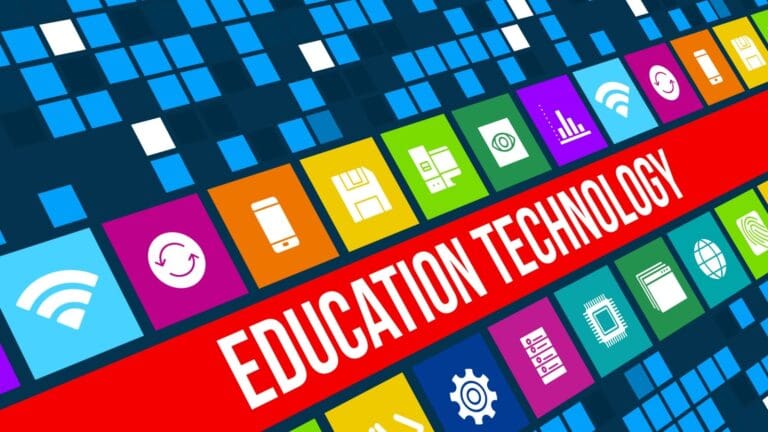Educational Games and Apps: Enhancing Learning for Children
Are you looking for a fun and engaging way to supplement your child’s education? Educational games and apps may be just what you need. These digital tools can help your child learn and reinforce important concepts in a fun and interactive way.
With the rise of technology, educational games, and apps have become increasingly popular. They cover a wide range of subjects, from math and science to reading and writing. Many of these games and apps are designed to be age-appropriate, so you can find something that suits your child’s needs and interests.
Whether you’re a parent, teacher, or student, educational games and apps can be a valuable addition to your learning toolkit. They can provide a break from traditional learning methods and offer a fresh perspective on difficult concepts. Plus, they can be a lot of fun!
Benefits of Educational Games and Apps
Educational games and apps have become increasingly popular in recent years as more people recognize their benefits. This section will explore three key benefits of using educational games and apps: improved learning outcomes, increased engagement, and personalized learning.
Improved Learning Outcomes
One of the most significant benefits of educational games and apps is that they can improve learning outcomes. Studies have shown that educational games and apps can help students learn more effectively and retain information better than traditional teaching methods. For example, a study by the University of Bristol found that students who used educational games to learn history performed better on tests than those who learned using traditional methods.
One reason for this is that educational games and apps are often designed to be interactive and engaging, which can help students stay focused and motivated. Additionally, many educational games and apps use gamification techniques, such as rewards and points, to encourage students to continue learning and track their progress.
Increased Engagement
Another benefit of educational games and apps is that they can increase student engagement. Traditional teaching methods can be dry and boring, which can make it difficult for students to stay focused and interested. On the other hand, educational games and apps are often designed to be fun and engaging, which can help students stay motivated and interested in learning.
Additionally, many educational games and apps are designed to be played collaboratively, which can help students develop teamwork and communication skills. This can be especially beneficial for students who struggle with social interactions or may be shy or introverted.
Personalized Learning
Finally, educational games and apps can provide personalized learning experiences. Traditional teaching methods often use a one-size-fits-all approach, which can be ineffective for students with different learning styles or abilities. Educational games and apps, on the other hand, can be tailored to individual students’ needs and abilities.
For example, many educational games and apps use adaptive learning technology, which adjusts the difficulty level based on the student’s performance. This can help ensure that students are challenged enough to stay engaged but not so much that they become frustrated and give up.
In conclusion, educational games and apps offer a range of benefits, including improved learning outcomes, increased engagement, and personalized learning. Incorporating these tools into your learning or teaching can help ensure that you or your students have a more effective and enjoyable learning experience.

Types of Educational Games and Apps
When it comes to educational games and apps, there are a variety of types that can help you learn and improve your skills. Here are three main categories:
Game-based Learning
Game-based learning involves using games to teach specific skills or knowledge. These games can be played on a computer, tablet or smartphone. They can range from simple games that teach basic math skills to more complex games that teach science, history or language arts.
One advantage of game-based learning is that it can be more engaging and interactive than traditional learning methods. Games can also provide immediate feedback on progress, which can be motivating for learners.
Gamified Learning
Gamified learning is similar to game-based learning but involves adding game elements to non-game activities. For example, a language learning app might award points or badges for completing lessons or practicing vocabulary. This can make learning feel more like a game and help keep learners motivated.
Another example of gamified learning is using educational games to reinforce learning. For example, a math teacher might use a game to reinforce a concept that was taught in class.
Educational Apps
Educational apps are designed specifically to help you learn and improve your skills. These can range from language learning apps to math apps to science apps. Some educational apps are designed for specific age groups, while others are more general.
One advantage of educational apps is that they can be used anywhere, anytime. You can use them on your smartphone or tablet while you’re on the go, or on your computer at home.
Another advantage of educational apps is that they can be personalized to your learning style and pace. Some apps use algorithms to track your progress and adjust the difficulty level accordingly.
Factors to Consider When Choosing Educational Games and Apps
When it comes to educational games and apps, there are a few factors that you should consider before making a decision. These factors can help you choose the right game or app for your child’s age, learning objectives, level of interactivity, and accessibility needs.
Age Appropriateness
One of the most important factors to consider when choosing an educational game or app is age appropriateness. Some games and apps are designed for young children, while others are meant for older kids or teenagers. By considering the age range of an app, you can choose one that is most appropriate for your child.
It is also important to consider the content of the game or app. Make sure that the game or app is appropriate for your child’s age and maturity level. Some games and apps may contain content that is not suitable for young children.
Learning Objectives
Another factor to consider when choosing an educational game or app is the learning objectives. You should choose a game or app that aligns with your child’s learning goals. Some games and apps focus on traditional subjects like math and reading, while others focus on 21st-century skills like creativity and problem-solving.
Consider what your child needs to learn and choose a game or app that supports those objectives. You can also look for games and apps that provide progress tracking so that you can monitor your child’s learning and adjust accordingly.
Interactivity
The level of interactivity is another factor to consider when choosing an educational game or app. Some games and apps are more passive, while others are more interactive. Interactive games and apps can be more engaging and effective for learning, but they may also require more attention and focus from your child.
Consider your child’s learning style and preferences when choosing a game or app. Some children prefer more interactive games and apps, while others prefer more passive ones.
Accessibility
Finally, it is important to consider accessibility when choosing an educational game or app. Make sure that the game or app is accessible to your child. This may include considerations like language support, visual and auditory impairments, and physical disabilities.
Look for games and apps that provide accessibility options and accommodations so your child can fully participate and learn.
Examples of Popular Educational Games and Apps
Math Games and Apps
If you want to help your child improve their math skills, many educational games and apps are available. One popular option is Prodigy, which is designed for elementary school students and covers math topics such as addition, subtraction, multiplication, and division. Another great option is DragonBox, which uses puzzles and games to teach algebra concepts in a fun and engaging way.
For older students, Quizlet is a popular app that can help with math and other subjects. It allows you to create digital flashcards and study sets and also has quizzes and games to help you review and test your knowledge.
Language Learning Games and Apps
Learning a new language can be challenging, but many educational games and apps are available to help. One popular option is Duolingo, which offers courses in over 30 languages and uses a variety of interactive exercises to help you learn. Another great option is Rosetta Stone, which uses a combination of images, audio, and text to immerse you in the language you are learning.
For younger learners, PBS KIDS Games offers a variety of language learning games that are both fun and educational. Some of these games focus on basic vocabulary, while others help with reading and writing skills.
Science Games and Apps
If you want to help your child learn more about science, many educational games and apps are available. One popular option is BrainPOP, which covers a wide range of science topics and uses animated videos and interactive quizzes to help students learn. Another great option is NASA’s Space Place, which offers a variety of games and activities related to space and astronomy.
For younger learners, the app Toca Lab: Elements is a fun and engaging way to learn about the periodic table and the properties of different elements. It allows you to experiment with different elements and see how they react to each other.
Overall, many educational games and apps are available to help students learn and improve their skills in various subjects. Whether you are looking for math games, language learning apps, or science games, there are many options to choose from.
Challenges and Criticisms of Educational Games and Apps
Overreliance on Technology
One of the main criticisms of educational games and apps is their overreliance on technology. While these tools can be effective in enhancing learning experiences, they should not replace traditional teaching methods entirely. Overreliance on technology can lead to a lack of engagement and interaction between students and teachers, which can limit the effectiveness of these tools.
Limited Scope of Learning
Another challenge of educational games and apps is their limited scope of learning. While they can be useful in teaching specific skills or subjects, they may not provide a comprehensive education. Some critics argue that these tools do not provide a well-rounded education that includes critical thinking, problem-solving, and creativity. Additionally, some educational games and apps may not be suitable for all ages or learning styles.
Cost and Availability
Cost and availability are also important considerations when it comes to educational games and apps. While some of these tools are free, others can be expensive and may not be accessible to all students. Additionally, not all schools or classrooms may have the resources to implement these tools effectively. This can create an uneven playing field for students, with some having access to these tools and others not.
In conclusion, while educational games and apps can be effective tools for enhancing learning experiences, they are not without their challenges and criticisms. It is important to consider these factors when implementing these tools in the classroom and to ensure they are used in conjunction with traditional teaching methods. Additionally, cost and availability should be taken into account to ensure that all students have equal access to these resources.
FAQ
You may have some questions if you are considering using educational games and apps to help with learning. Here are some common questions and answers:
What are some fun but educational games?
There are many educational games that are both fun and engaging. Some popular options include:
What games help with learning?
Games that help with learning are those that are specifically designed to teach a particular skill or subject. Some examples of games that help with learning include:
- Math games that teach basic arithmetic or algebra concepts
- Language games that teach vocabulary or grammar
- Science games that teach about biology, chemistry, or physics
Do educational games help learning?
Yes, educational games can be a great way to help with learning. Games can be engaging and interactive, which can help keep learners motivated and focused. Additionally, games can provide immediate feedback, which can help learners understand what they are doing well and what they need to work on.
How effective are educational games?
The effectiveness of educational games can vary depending on various factors, such as the learner’s age, the subject being taught, and the game’s design. Some studies have shown that educational games can be as effective as traditional classroom instruction, while others have shown mixed results. Ultimately, the effectiveness of educational games will depend on how they are used and integrated into the learning process.







